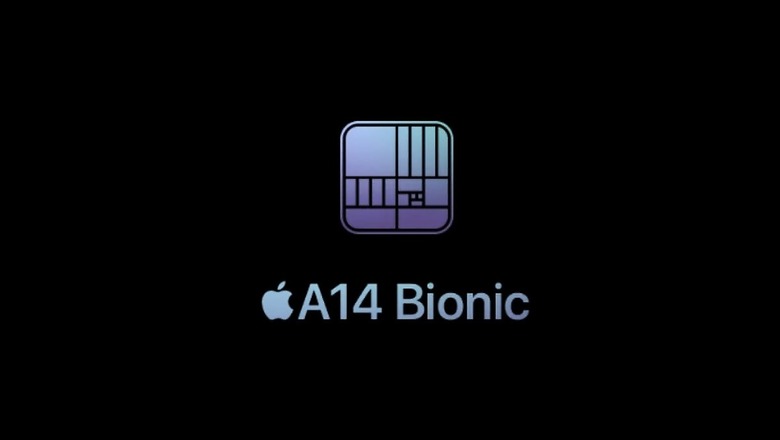
views
Apple this week announced its new Apple Watch and iPad models at the company’s ‘Time Flies’ virtual event. Among the products announced, the Apple new iPad Air garnered a lot of attention as it carries Apple’s latest A14 Bionic chip, which is also expected to power the upcoming iPhone 12 series.
Now, ahead of the new iPhone launch, it would be interesting to see how Apple’s A14 Bionic chip fares against some of the other players like Qualcomm’s Snapdragon 865 SoC, or Samsung’s Exynos 990 that powers its Galaxy Note 20 series. Part of that excitement can be satiated now, as a new report shows that Apple’s A14 Bionic chipset has lost to Qualcomm’s Snapdragon 865 SoC in an AnTuTu benchmark test.
AnTutu exposed the results of the iPhone 12 Pro Max, and the performance of the Apple A14 was disappointing. This score is even lower than Snapdragon 865+. pic.twitter.com/7x5feZ0GPo— Ice universe (@UniverseIce) September 17, 2020
Reliable tipster Ice Universe (@UniverseIce) recently put screenshots of an AnTuTu comparison of the Apple iPhone 11 Pro Max and Apple iPhone 12 Pro Max, which will be powered by Apple’s A14 Bionic chip. The results show the iPhone 12 Pro Max achieved a total benchmark score of 572,333, which is much lower than the 629,245 benchmark score when tested on an Asus ROG Phone 3 that runs on the Snapdragon 865+. We were not able to verify the authenticity of the iPhone 12 Pro Max scores independently.
If true, this will mean a significant victory for Qualcomm, which has been losing out to Apple in the chipset race for the past few years. The scores can also be lower as the iPhone 12 Pro Max might not be running on a final version of the software. It is likely that the A14 Bionic chip can put out more performance if paired with a stable software and device. All of this will be cleared soon, as the next generation of Apple’s iPhone is set to launch in the coming weeks.
Apple’s A14 Bionic chip is the world’s first 5-nanometer chip to make it to a consumer device. Apple says that it has squeezed in 11.8 billion transistors in the A14 Bionic chipset. This helps the A14 Bionic to deliver 40 percent better overall performance, and 30 percent better graphics than the A13 Bionic chip that powers the iPhone 11 series.



















Comments
0 comment